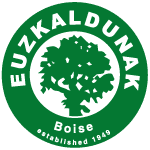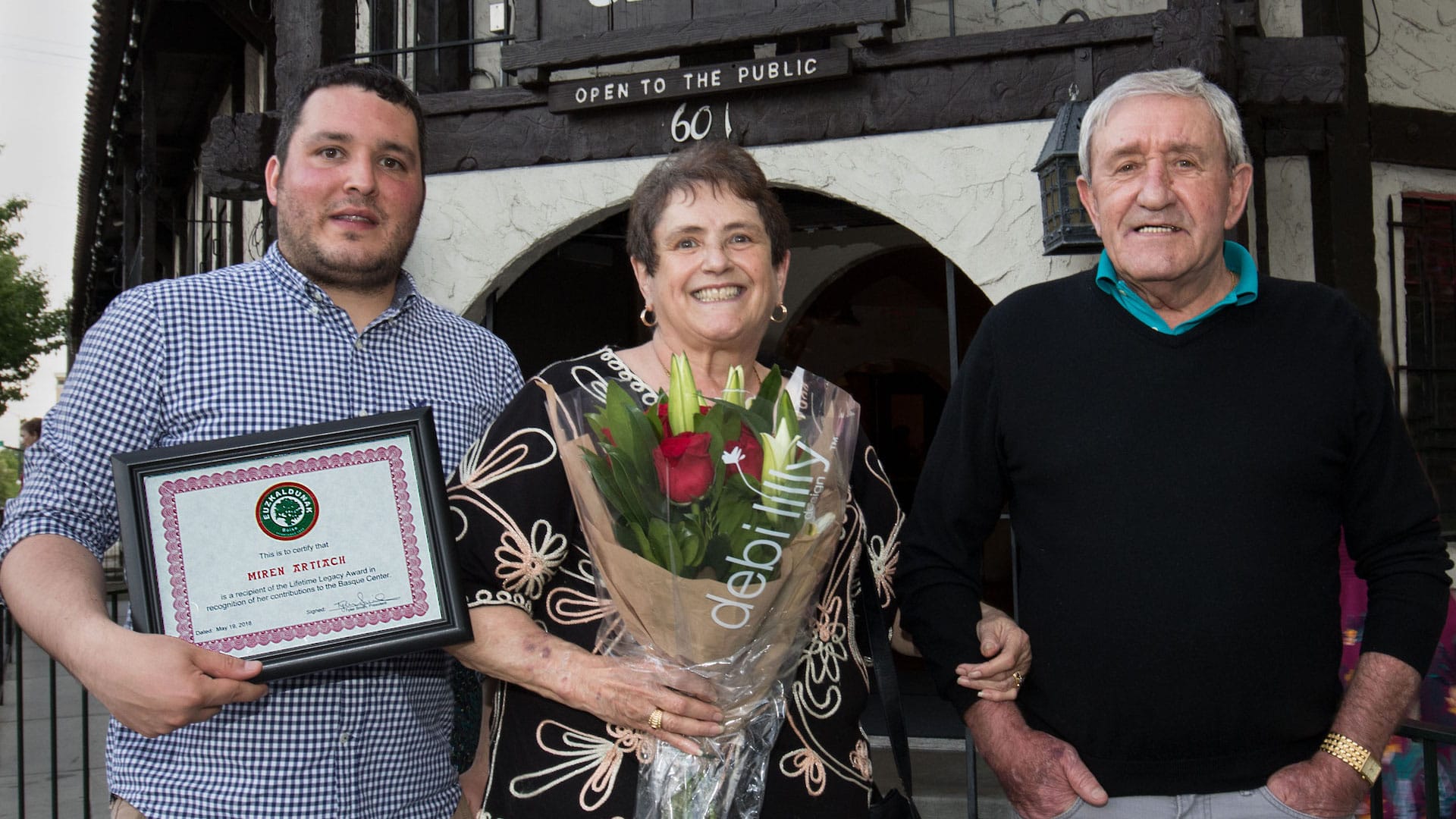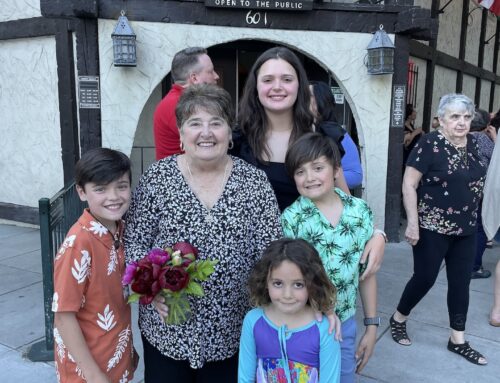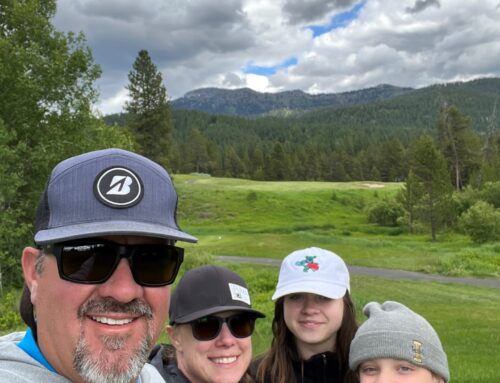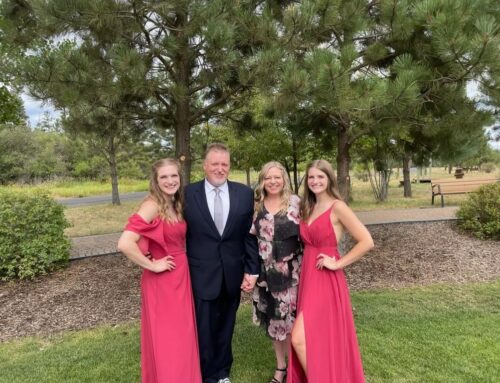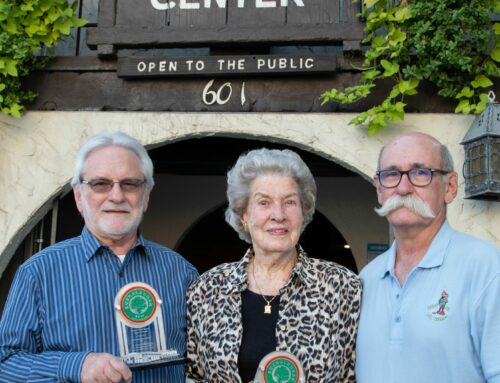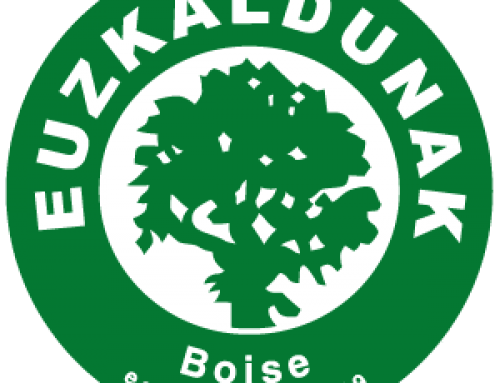Miren Rementeria Artiach was raised in Boise a few blocks East from the Basque Center. From her teenage years, she served as informal translator of Basque and English for Euzkaldunak members who needed help with doctors, educational, legal and financial paperwork. Once the Oinkaris were formed, she joined and performed with the group and also helped teach dancing and singing to the children’s groups. Later as an adult, Miren served as Business Manager for the Oinkaris- promoting their performances in Idaho and the Western United States, organizing and working at fundraisers and selling chorizos at the Western Idaho Fair.
In 1969, the Idaho State Department of Education began discussing having an Idaho Basque Studies Center and by 1971, Miren was teaching Euskera classes in the Board Room of the State Board of Education. She then helped with a grant proposal to the US National Endowment for the Humanities which when selected won $52,000 for a 2 year grant to create Basque Studies in Boise. Miren was hired as the Executive Secretary for all the projects and programs, one of those projects being the original 1970s effort to record interviews with Euzkaldunak’s Basque immigrants to Idaho (recordings now stored at the Basque Museum). This grant created the committee that then created the Idaho Basque Studies Center in 1972, the 1972 Holiday Basque Festival- the three day Basque Festival that served as a blueprint for today’s Jaialdi, the first Basque Music and Culture Camp held at Bogus Basin for 2 weeks and the precursor to today’s NABO Udaleku, the Bizkaian Basque-English dictionary and workbook reprinting and the idea for the Boise State College campus in Oñati.
All of this activity for Euzkaldunak added another layer of interest in Basque activities, now in pelota. By the early 1970s, the now Anduiza Fronton was owned by an engineering firm using it for storage. The Idaho Basque Studies Center committee negotiated to be able to rent and use it and offered to help clean and
paint it. Miren was one of those Euzkaldunak volunteers that spent their weekends for many months, hauling trash to the dump cleaning and painting and creating the fronton that we all know today.
The committee of the Idaho Basque Studies Center, and Miren as secretary, also communicated with Basques in other areas of North America and had many discussions about forming some type of umbrella organization for the Basque clubs of the US. In 1973, Miren attended and was appointed as the first secretary at the first meeting of US Basque clubs which would later form the federation of the North American Basque Organizations in 1974. She was selected as NABO’s first secretary.
In 1970, Miren attended the first ever Basque Studies Abroad Program in Ustaritz, Lapurdi. She contacted and encouraged other Basque Americans in Nevada, California, Oregon and New York and the group spent that summer together studying Basque language, history, politics and arts. ( I believe the year was 1972 rather than 1970 as this aboard program was part of the Humanities grant)
During 1971 and 1972, Miren taught Euskera language classes every Tuesday and Thursday nights and for the Boise Schools Community Education Program, and later in 1978 and 1979 at BSU. The success of having students committed to learning Euskera created another wave of people motivated to join the Euzkaldunak Inc. and to maintain their Basque identity.
In the early 1970s, she even wrote in English and in Basque, the Eusko’taran Abotza, “Voice of the Basques” published in Boise and mailed to approximately 900 addresses in Basque communities throughout the US and Mexico.
Miren sang in the Euzkaldunak’s first choir, the Abeslari Basque Singers, which later became the Anaiak Danok Choir.
In 1976, the Euzkaldunak sponsored English classes for our members, and once again Miren was our members’ teacher, this time in English with weekly lessons continuing through to 1980.
Each Christmas, from the 1960s through until recently, our Boise’ko Gasteak have enjoyed an after performance party with treats at the Basque Center. For more than 15 years, Miren volunteered with others to make treats, serve treats and clean-up after the Christmas performance and party.
In the 1970s and 1980s, Miren volunteered to help a committee produce the Euzkaldunak’s annual celebration of Aberri Eguna- the Day of the Homeland and celebrated on Easter Sunday.
In 1981, when the Basque Government presented the first Tree of Gernika to the Euzkaldunak, Roy Eiguren and Miren were instrumental in helping Pete Cenarrusa secure permissions to bring the seedlings into the USA, and a planting at Idaho’s State Capitol Building grounds.
Miren served on the original committee that created Jaialdi and continued on in 1987, 1990, 1995, 2000.
From 1998 to 2002, she participated in the research and publication of the book “Boise Basques: Dreamers and Doers” originally published in the Basque Government’s series about the Basque communities around the world called Urazandi.
An Euzkaldunak member for nearly five decades, Miren is currently the President of the Cenarrusa Foundation for Basque Culture and serves as Secretary for the Idaho Basque Catholic Foundation, Artzai Ona.
Zorionak to Miren on earning this well-deserved recognition for your dedication, service, and passion in working to promote and preserve Basque culture. Eskerrik Asko!
